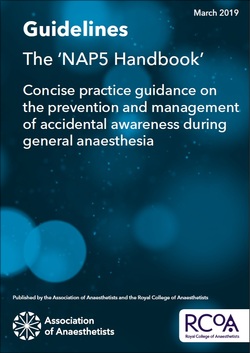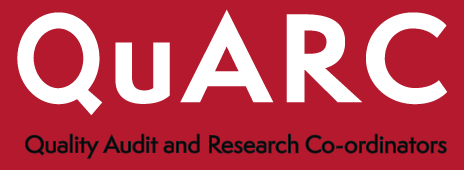A new guideline offering practical guidance on the prevention and management of accidental awareness during general anaesthesia will be published today and made available to all anaesthetists, clinical and medical directors of hospitals and health service management throughout the UK and Ireland.
'The NAP5 Handbook - concise practice guidance on the prevention and management of accidental awareness during general anaesthesia' is being published in response to the 2014 fifth National Audit Project (NAP5) of the Royal College of Anaesthetists and Association of Anaesthetists. This was the largest ever study to date looking at accidental awareness during general anaesthesia (AAGA) in the UK and Ireland.
This study found that accidental awareness only arises in approximately one in every 19,000 anaesthetics and the majority of episodes are short-lived, occur before surgery starts or after it finishes, and do not always cause concern to patients. Conducted over a whole calendar year, the researchers studied three million general anaesthetics from every public hospital in the UK and Ireland, and studied more than 300 new reports of awareness. As a result a comprehensive list of 64 recommendations was made.
Following the 2014 report, numerous publications emerged but they were academic in nature and did not provide practical recommendations for use on a day to day basis.
This new guideline, endorsed by the Royal College of Anaesthetists, the Association of Anaesthetists, the Safe Anaesthesia Liaison Group and the College of Anaesthesiologists of Ireland, aims to distil and interpret the findings of NAP5 into actions that individuals and organisations can follow to reduce the risk of accidental awareness.
Alongside ten key recommendations, the guideline specifically emphasises the overriding importance of neuromuscular blocking drugs (NMBDs) in increasing the risk of AAGA and offers guidance on how to approach patient consent for general anaesthesia and sedation. In addition, the guideline presents a precise approach to the use of NMBDs that has not been previously available.
Professor Ravi Mahajan, President of the Royal College of Anaesthetists said: "The NAP5 Handbook now provides, for the first time, anaesthetists and other clinicians with an easy-to-use reference guide which they can use to advise and consent patients undergoing general anaesthesia for surgical procedures. I know that accidental awareness can be a concern for some patients, so for anaesthetists to have this handbook available to reassure their patients, is a welcome step forward."
Association of Anaesthetists president and consultant anaesthetist at Aberdeen Royal Infirmary, Dr Kathleen Ferguson, said: "Although the majority of the three million general anaesthetics administered every year in the UK and Ireland are uneventful, any medical procedure always carries a risk of complication. Whilst AAGA can't be completely eradicated, by increasing our understanding of why it happens and improving professional practice we can reduce the risk to patients.
"The NAP5 Handbook provides easily accessible actions and guidance for practitioners to help prevent and manage accidental awareness during general anaesthesia. By making it available to all anaesthetists, clinical and medical directors of hospitals and health service management throughout the UK and Ireland we aim to ensure all practitioners can access this important guidance."
10 April 2019
Share this :








